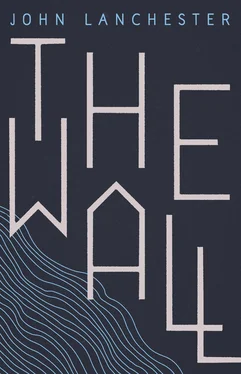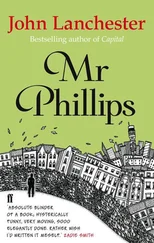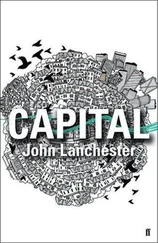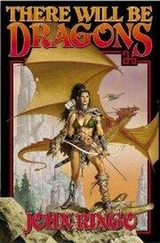‘Cold?’ I said. ‘Remote?’ Hifa shrugged. She held out her hand to me and I took it. We were setting out to do something we had long discussed and Hifa had long dreaded.
‘Are you sure you’re ready for this?’ she said.
‘I think so.’
‘You can say if you aren’t.’
‘I know.’
‘I won’t hold it against you and bring it up later.’
‘I know.’
‘I have doubts of my own.’
‘I understand.’
‘It’s not guaranteed to go well.’
‘Yes, I understand.’
‘Not through any fault of yours – please don’t think that. It’s just, it could go wrong.’
‘I know.’
‘I don’t want to have misled you.’
‘Thank you.’
‘To make it clear.’
‘OK, Hifa, I’ve got it, I really have, and if you think it’s a bad idea and don’t want me to do it that’s completely fine, we won’t.’
‘No need to be arsey.’
‘I don’t think I was.’
‘Well that’s a matter of opinion.’
‘Hifa, for fuck’s sake, we’re only talking about visiting your mother for a few days. She isn’t Hitler. At least if she was Hitler I assume you’d have said.’
She exhaled, slow and long.
‘I just, I don’t want it to get in the way,’ she said, more subdued, less fighty.
‘It won’t,’ I said. ‘I promise.’
We took the usual journey at the end of that shift, lorry to train to London. We were leaving Ilfracombe 4 for ever. The company was the quietest and the soberest I’d ever seen it on a trip like this. The new people hadn’t really bedded in yet and the Defenders who’d been there for longer were all thinking about the people who weren’t with us. Absent friends. There was still no news about Cooper. It was odd, because if you had pumped me full of truth serum and asked me if there was anything about that section of the Wall I would miss – the section where we’d spent the winter months in the cold and dark, where I’d been the most frightened I’d ever been, and the most bored I’d ever been, and had the most intense experiences of my life, and nearly died – I’d have said no. But as we left it behind and it moved into the past, moved into the category of experiences which were over, I realised I felt a sense of loss. I’d probably never see it again: that particular stretch of concretewindwatersky, that exact patch of damp over my bed, those precise stretches of ramparts where puddles would accumulate in the gravel. The place where I met Hifa.
At London we split up as usual, said muted goodbyes. Hifa and I crossed the city to catch a train to the eastern town where her mother lived. The transport dynamic was always the same: on the train from the coast, where we outnumbered the civilians, we were the dominant force, the top dogs, and people were wary, kept away and moved away. In the city, in small numbers and as individuals, we were objects of curiosity instead of fear: people snuck glances at us, observed us, would sometimes catch our eye. Nothing made you feel the gap between us and civilians more than being in the middle of them. They just weren’t thinking about the same things, didn’t have the same priorities, had no idea how lucky they were.
You could tell pretty much without exception when the people checking you out had been Defenders: they were a certain age, within a decade or two of us, and they looked both more empathetic and more assessing. They were probably wondering how long we’d been on the Wall, how long we had to go. I still had my arm in a sling and I was wearing my medal and I could see them noticing both of those things. The look in their eyes had some pride in it, pride for you and a little bit for themselves, too; some sympathy (it was easy to see them thinking, thank God I don’t have to do that again, I wonder how long the poor sods have to go). Sometimes I thought I caught them thinking: when I was on the Wall, I used to tell myself I’d never forget how horrible it is to be cold and tired and frightened and have months more of the feeling to go, and I promise I’ll remember this moment, and if I ever get off the Wall and remember this moment I promise I’ll never again take for granted being comfortable and safe and somewhere other than here. I didn’t blame them for it, I’d had the same thought many times myself. I hoped more than anything to get to a point in my life when I was like them – when I had the luxury and privilege of having been away from the Wall for so long that I needed external prompts to be reminded of it. When the Wall would be in the past, not the present and the future.
The train to the east was old and slow. I liked it, the creakiness and old-fashionedness of it; the kind of train where people were going home with shopping bags, but had brought their own packed snacks for the trip rather than buying anything expensive in the big city. Hifa and I didn’t talk much. I watched London go past out the window and then blur into suburb and exurb, those random tower blocks which spread on the outskirts of the city, and then fields and country. I’m a city boy and the country always seems so empty, so underpopulated; even now when we grow all our own food and there’s more said about farming and food than ever before, you never actually see any people working on the land. Drones and bots, yes, people, no.
We arrived at the end of the main line and went to the station cafe to wait for the train to the coast. We drank heavily stewed tea and ate dry biscuits which were borderline inedible until you dunked them. I felt sad, suddenly and unexpectedly, and couldn’t tell why, then realised I was having a near-memory of Mary, bringing her hot drinks to us twice a shift. I didn’t want to say that to Hifa so I just sat there with the feelings for a moment, then looked over at her and could see she was doing something similar, sitting there staring down into her tea.
The train to the coast was even racketier and smaller and older than the last one, no more than two carriages long. The fields were big and dominated by huge single crops, most of which I didn’t recognise, apart from the loud yellow of rapeseed. The light began to change as we got nearer the coast, and before long I could smell the sea. The train made frequent stops and was almost empty when it began to slow down and Hifa said, ‘We’re here.’ She swung her rucksack down off the space above her seat. Hifa was not looking at all like herself, as if she had shrunk slightly. I recognised the symptoms of familial dread.
At the end of the platform, a woman with a turban wrapped complicatedly around her head and two different brightly coloured shawls was standing waiting for us, leaning on a stick. She had the same caramelly skin tone as Hifa but was taller and more operatic, both in how she dressed and how she acted: she projected drama. To the side of her and one pace behind was standing a woman instantly recognisable as Help.
‘Darling!’ she said as soon as she saw us. ‘Darling! Let me look at you.’ Hifa stood and submitted to this. Her mother reached out and touched her face and turned it slightly from side to side. She held her fingers over the place on the top of her head where Hifa had had stitches. She took a step backwards and looked at Hifa up and down. She tilted her own head.
‘As beautiful as ever,’ she said. She came over and stood in front of me. She held the cane out behind her and the Help took it. Then she held out both of her hands in front of her. I felt I had no choice except to do the same. She took my hands and held them. We still hadn’t spoken. She did the same up-anddown thing she had done with her daughter, then let go of my hands, and without touching me held her fingers over the place where I’d been wounded. Then she stepped back and turned to Hifa.
‘Yes,’ she said. ‘I understand.’ And to both of us: ‘Welcome!’
Читать дальше












